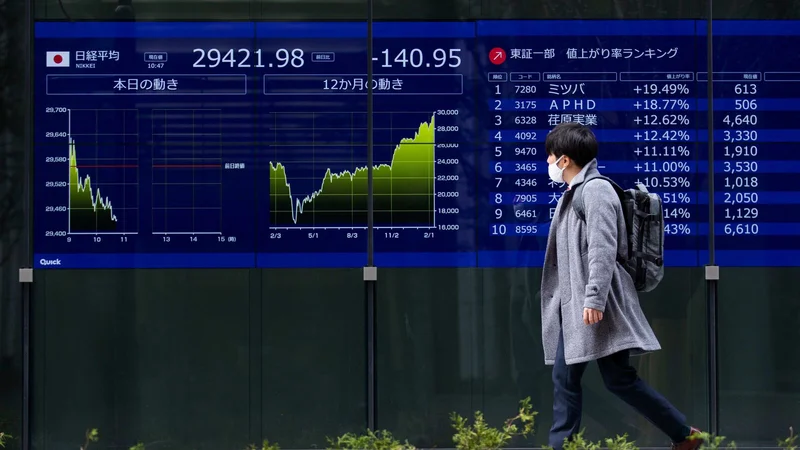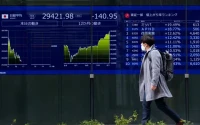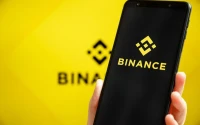Ray Dalio's been making the rounds again, and this time he's not just waving a general red flag at the "stock market today." He's zeroing in on the AI boom, and specifically, Nvidia. While the headlines scream about Nvidia's staggering revenue – $57 billion in the last quarter, a 62% year-over-year jump – Dalio's warning about a bubble forming deserves a closer look. It's not about if the music stops, but when, and more importantly, who gets left holding the bag.
The AI Mirage: $19 Trillion and Counting
Goldman Sachs just dropped a report that’s got me raising an eyebrow – and reaching for my calculator. They estimate the market's already priced in a whopping $19 trillion of AI-related gains. Now, Goldman says company valuations aren't at "bubble levels," but their own analysis shows the market is running "well ahead of the macro impact." Goldman says the stock market has already priced in the AI boom, with $19 trillion of market value running ahead of actual economic impact so far
Here's the rub: Goldman estimates the total present discounted value (PDV) of AI-generated capital revenue for the US economy at a baseline of $8 trillion. Best case? Maybe $19 trillion. But the market has already added $19 trillion in value to AI-related companies since ChatGPT launched. The market gain is already at the “upper limit of the projected macro benefits”.
Think about that for a second. The market's acting like the absolute best-case scenario is already a done deal. That's not optimism; that's delusion. (And yes, there's a difference).
Dalio's Liquidity Time Bomb
Dalio isn't just worried about valuations being high (though, let's be honest, they are). His argument, detailed in his essay, is that bubbles pop when investors need to sell, not when they want to. That need arises from debt, taxes, or liquidity crunches. And that's where the wealth inequality comes into play.
The top 10% of Americans own almost 90% of all stocks and account for about half of all consumer spending. If something forces that top 10% to liquidate – say, a wealth tax in California (a 5% one-time levy has been proposed) – the cascade could be brutal. Margin debt is already at a record $1.2 trillion.

I've looked at hundreds of these economic forecasts, and the consensus seems to be ignoring this critical concentration of wealth. The market is treating Nvidia's success as a sign that everyone is winning. It's not. The rising tide is only lifting the yachts.
Remember Jensen Huang dismissing bubble fears? He sees "three simultaneous revolutions" driving AI demand. Fine. But revolutions can be messy, and they often leave a lot of wreckage in their wake. It's like saying the California Gold Rush was a sure thing because everyone wanted gold. Sure, some people got rich. But a whole lot more went broke.
The Fallacy of Extrapolation
Goldman points out two major risks: the "fallacy of aggregation" and the "fallacy of extrapolation." The first is that investors are assuming every AI company will replicate Nvidia's success. The second is that they're treating short-term profit boosts as permanent.
Let's drill down on that second point. Nvidia's data center revenue hit $51.2 billion, up 66% year over year. Can that growth rate continue? Unlikely. Competition is already heating up. AMD is nipping at Nvidia's heels, and even Google is developing its own AI chips. The pie may be getting bigger, but Nvidia's slice will inevitably shrink.
The stock market's forward-looking nature is "a feature, not a bug," according to Goldman. But that feature can quickly become a bug when optimism morphs into irrational exuberance.
A Politically Explosive Bust
The AI boom is real. Nvidia's profits are real. But the market's reaction is bordering on the absurd. Dalio's right to be worried. This isn't just about rich people getting a little less rich. This is about a potential liquidity crisis that could trigger a broader market correction. The question isn't whether Nvidia will continue to print money (it probably will, for a while). The question is whether the market has priced in every single possible upside and ignored the very real downside risks. And my analysis suggests it has.










